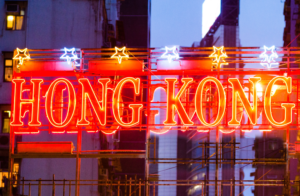There’s no gainsaying that Singapore remains one of the best destinations to do business in Southeast Asia. As such, many local and foreign companies have made the move to incorporate their business in this Asian country.
The Accounting and Corporate Regulatory Authority (ACRA) is responsible for incorporating businesses in Singapore. To begin the process of incorporating your business, you would have to fill out and send in a company registration application. If all requirements for business registration are met, ACRA will usually approve the application. However, when the application falls short of any of the stipulated conditions, the application is often rejected.
As a prospective business owner, having your registration application rejected can be frustrating. However, knowing the possible reasons for rejection can help you make better-informed choices in your next application.
Reasons ACRA Might Reject Your Company Registration Application
There are five primary reasons why your company’s registration application has been or can be rejected by ACRA.
Your Chosen Company Name is Not Allowed
Think of a business name as a unique identifier that sets your business apart from all other businesses in Singapore. To avoid a mix-up either in the nearest or distant future, ACRA only approves unique business names.
If ACRA rejects a business name, it’s usually as a result of any of these reasons:
- Your chosen business name is the exact name of another incorporated business
- Another applicant has already reserved the name
- The name has an obscene or other objectionable meaning
- The name has religious connotations
- The Ministry of Finance notifies the Registrar to reject the name
Even without ACRA deciding to reject similar business names, a legal complaint can still be filed against your company by another company that was the first user of the name.
For instance, Microsoft started as a small software business. Without corporate bodies like ACRA, another business could easily have chosen the same name and become incorporated. When the real Microsoft became an internationally recognised company, it would have been hard for investors to differentiate between the two companies.
No one enjoys being rejected, so your frustration is valid. However, going back to the drawing board to choose a unique name will be more advantageous for your company in the future. Follow our pointers to pick a company name in Singapore to ensure the company name is not the reason for your application being rejected.
The Company Has No Registered Singapore Address
A primary requirement in the Companies Act states that all incorporated businesses in Singapore must have a local address. The law is highlighted in Section 142(1) of the Singapore Companies Act. As far as ACRA is concerned, the address must be a physical location.
ACRA would reject your registration application as a result of any discrepancy in your address, such as if:
- The submitted business address is a PO Box
- On inspection, there’s no physical building at the stated address
- Notices and all communications cannot be sent to the location
- The business is not open for at least three business hours each business day
- It is not easily accessible to the public
For small businesses and startups that are unable to rent a physical space or a work-from-home type of business, ACRA allows business owners to use their home address as the business address. However, as a registered business, their physical address will still need to be placed in public records. In other words, everyone will be able to access and see their home address if the information is searched. So companies also have the option to use a virtual office address.
The Company Does Not Meet the Requirement for the Number of Shareholders
If your business is a Private Limited Company, the Companies Act mandates that it must have at least one shareholder. The maximum allowable number of shareholders for this type of company is 50. There are no restrictions on who can be shareholders, as long as their number falls between the minimum and maximum specified.
To clarify, shareholders for the business can be corporations and individuals, who can be either local or foreign. If the company has a single shareholder, the corporation or individual can own 100% of the shares, irrespective of whether they’re foreigners or legal residents of Singapore.
On the other hand, an Exempt Private Limited Company would need a minimum of 1 shareholder and can have a maximum of only 20. In this type of company, all shareholders must be individuals. Corporations cannot hold shares, whether directly or indirectly.
To avoid getting your business registration application rejected, you must acquaint yourself with ACRA’s rules about the number and type of shareholders allowed.
The Company Has No Local Director
Although ACRA’s laws allow for both foreign and local shareholders, an incorporated business in Singapore must have at least one local director. As far as ACRA is concerned, this local director must meet these basic requirements:
- Be either a Singapore Citizen, Permanent Resident, or holder of an Employment Pass or EntrePass
- At least 18 years old
- Has full legal capacity
- Is not disqualified from being hired as the company’s director
A local director on EP can be appointed only after the business is incorporated. In other words, during the application stage, you would have to appoint a director who is either a Singapore Citizen or Permanent Resident. If you don’t have anyone who could take up this role, you can always appoint a nominee director to meet the statutory requirements.
In addition to a local director, incorporated businesses in Singapore are required to have a company secretary within six months from when the company is incorporated. The basic requirements of the director also apply to the secretary.
The Company Has No Business License
Approved names are reserved for a maximum of 60 days. Before a name can be reserved, a part of ACRA’s name verification process will ensure there’s no other company with a similar name in the same industry. As a result, you’ll be required to submit at least one SSIC Code.
An SSIC Code defines the nature or the industry in which your business belongs. Some industries require licenses before a business can operate. Therefore, if your business falls within an industry whose SSIC code requires a license, you would have to submit a valid license along with your application.
Failure to include a license would result in a rejection of your application. In addition, depending on the necessity and importance of a license to start your type of business, you may face legal charges and possibly have to pay a fine.
Conclusion
If Singapore is also your destination to open a business, one of the first steps you must take would be to incorporate your business into the country. ACRA, the government body in charge of registering and controlling business activities in Singapore, has made the process easy for locals and foreigners. However, some registration applications get rejected for failing to meet ACRA’s guidelines and requirements. This article gives a detailed breakdown of some of the possible reasons business registration applications are occasionally rejected.
So, if you want to ensure you don’t face any rejection while incorporating your company, engage a corporate service provider to manage and guide you through the process. It’s a sure shot and the most convenient way to incorporate a company in Singapore.




